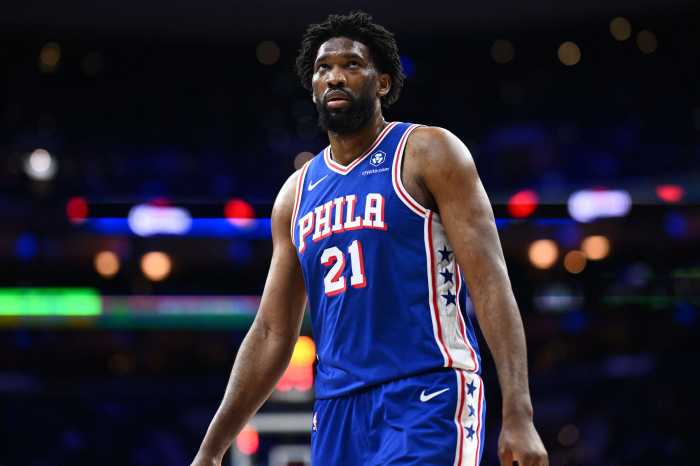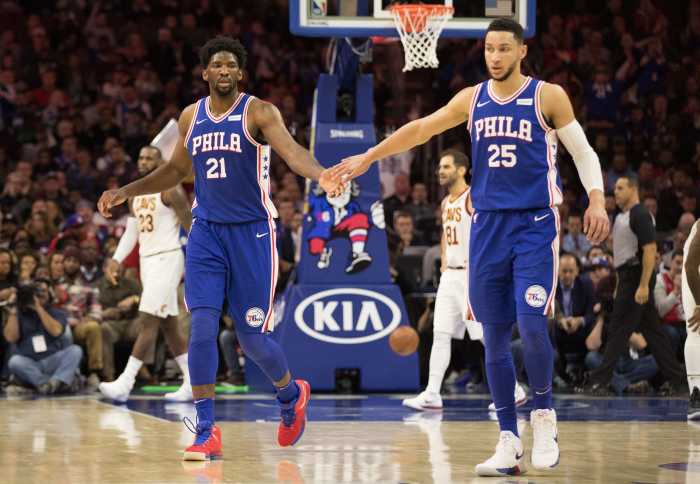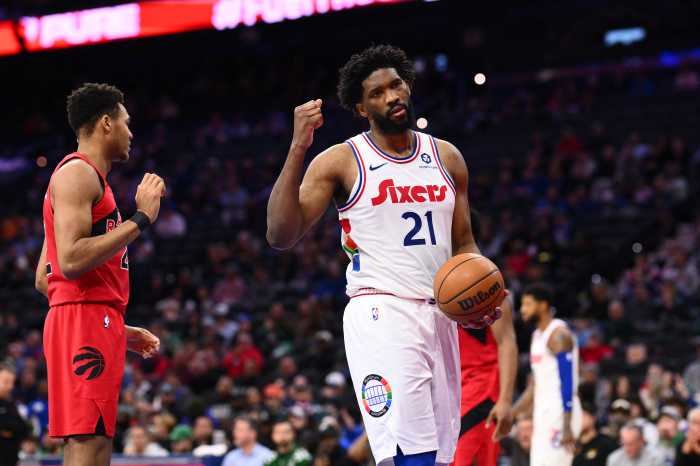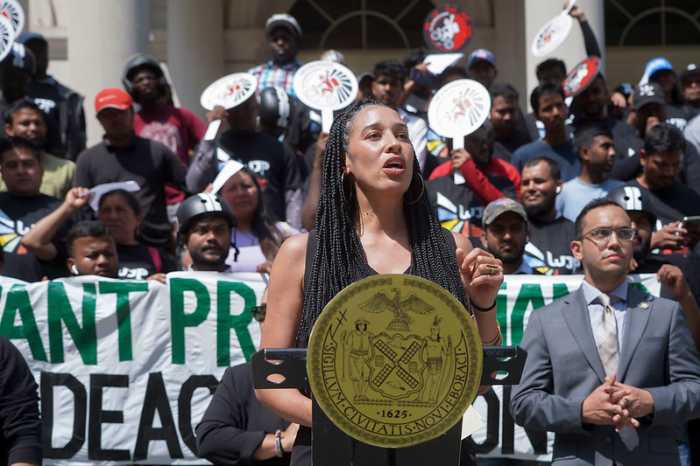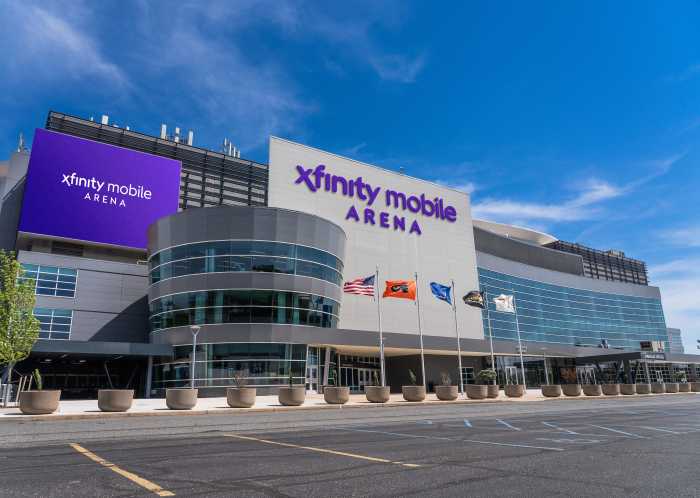Amidst the star-hunting reports surrounding the Philadelphia 76ers, the team has once again been linked to a familiar face, though he appears to me more of a backup plan. According to Yahoo Sports Jake Fischer, if the star hunt goes awry, the Sixers could target a player on an undesirable contract, referencing Chicago Bulls wing Zach LaVine as the primary example.
In a Philly-focused info drop Thursday afternoon, Fischer discussed the many potential targets Philadelphia may discuss this offseason. Regarding LaVine, Fischer had this to say:
“Striking out on a big-time wing would also leave the door open for Philadelphia to consider taking back a player such as Zach LaVine, sources said, in the event Chicago or another team is willing to attach draft capital to move off salary.”
To be clear, Fischer is linking LaVine more as a concept than an actual target here, but considering the previous interest Philadelphia has registered in him and the circumstances around the notion. This is not like reports last offseason, which referred to the price for LaVine as a “giant.” Still, the Sixers are in a position where they must seek winning talent, not to take on undesirable salary for additional assets.
LaVine is a clearly talented player and has been for a number of years, but there are too many concerning matters in the way to believe that he could be relied upon as a third star in Philadelphia.
Little to no interest in defense
As impressive an offensive player as LaVine is, the opposite could be said about his performance on the other side of the ball. It’s not so much a matter of ability, as his athleticism is in a high enough tier to cover up a lack of IQ and awareness. The larger concern is the lack of desire to contribute defensively.
Often a spectator instead of a participant, LaVine has yet to show anything close to a level of commitment that would make up for his other weaknesses in this area. This is only the first reason is fit in Philadelphia is suspect at best.
Tyrese Maxey, who would be LaVine’s backcourt partner with the Sixers, is not known as a plus-defender either. However, the major difference between these two electrifying guards comes down to the previously mentioned desire.
Maxey is far from a defensive stopper, but the level of engagement he showed, particularly last season, elevated his performance to the point that he was not a liability either. Ideally, the Sixers are looking to put improved defensive talent next to their undersized guard.
Not only does Zach LaVine not fit that bill, but to this point, he has not shown a competitive desire on that end.
The best ability is…well you know the rest
Over his seven seasons with the Chicago Bulls, LaVine has averaged just 53 appearances a season, playing in 67 percent of possible games in that time.
Then there’s his projection moving forward. LaVine is already 29, and while that is not over the hill for the modern NBA player, he endured ten seasons of wear and tear, which has been accompanied by his aforementioned lengthy injury history.
While his jump shot likely will age better than other aspects of his game, much of what LaVine does on the court is based on his athleticism, which will not progress in as forgiving a fashion. Players like John Wall and Russell Westbrook have experienced dramatic dropoffs from their previous high-performance levels due to a combination of injuries and the undefeated father time.
To be fair, Paul George shares similar age and injury concerns, more so even as he is seven years LaVine’s senior. While that is a legitimate concern for bringing George, and again, LaVine, the former has played at a significantly higher level than the latter historically and boasts 110 more games of playoff experience.
LaVine’s most recent injury, which caused him to have season-ending foot surgery back in January, was caused by a reaggregation of a previous injury, which gives concern despite the fact that he is reportedly ahead of schedule regarding his rehab.
With multiple lower body injuries and surgeries in his past, the odds of LaVine aging gracefully as a basketball player are not overwhelmingly high.
The albatross in the room
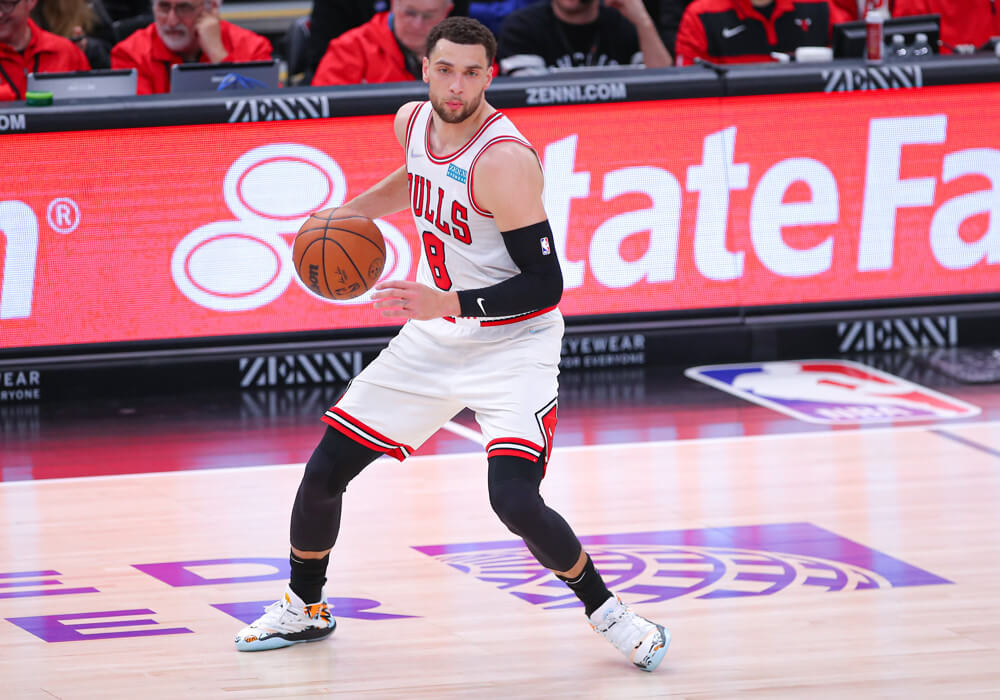
Zach LaVine is currently two years through a five-year deal worth a total north of $215 million, of which nearly $138 million is still owed. That comes out to an average annual value over the next three years of roughly $46 million for a player who is a liability on one end of the court and averages 53 games played per season.
At this point, it’s not hard to see the argument for the Bulls paying to get off of LaVine’s deal, but it’s difficult to envision how acquiring LaVine is supposed to elevate the Sixers to contenders. The idea of the Sixers being able then to reroute LaVine in a deal for a star as matching salary makes sense on the surface, but considering the negative value of his deal, or at least the perception that his deal is such, how does that improve negotiations for the Sixers?
LaVine would account for over 70 percent of the Sixers’ expected cap room this summer and over 30 percent of the entire salary cap. Acquiring his contract, even if Chicago were to attach a future first-round draft pick, would be nothing short of fiscally irresponsible. Even if the Bulls were desperate enough to send the eleventh pick in this year’s draft, Philadelphia would have to be beyond confident in their ability to reroute LaVine sooner than later for a deal to work.
While the Sixers will more than likely be forced to be concerned in one or more areas, be it a weakness in their next star’s game, their age, injury history, or financial implications of the acquisition, Zach LaVine checks too many of those boxes to be relied on as Philadelphia’s answer.

